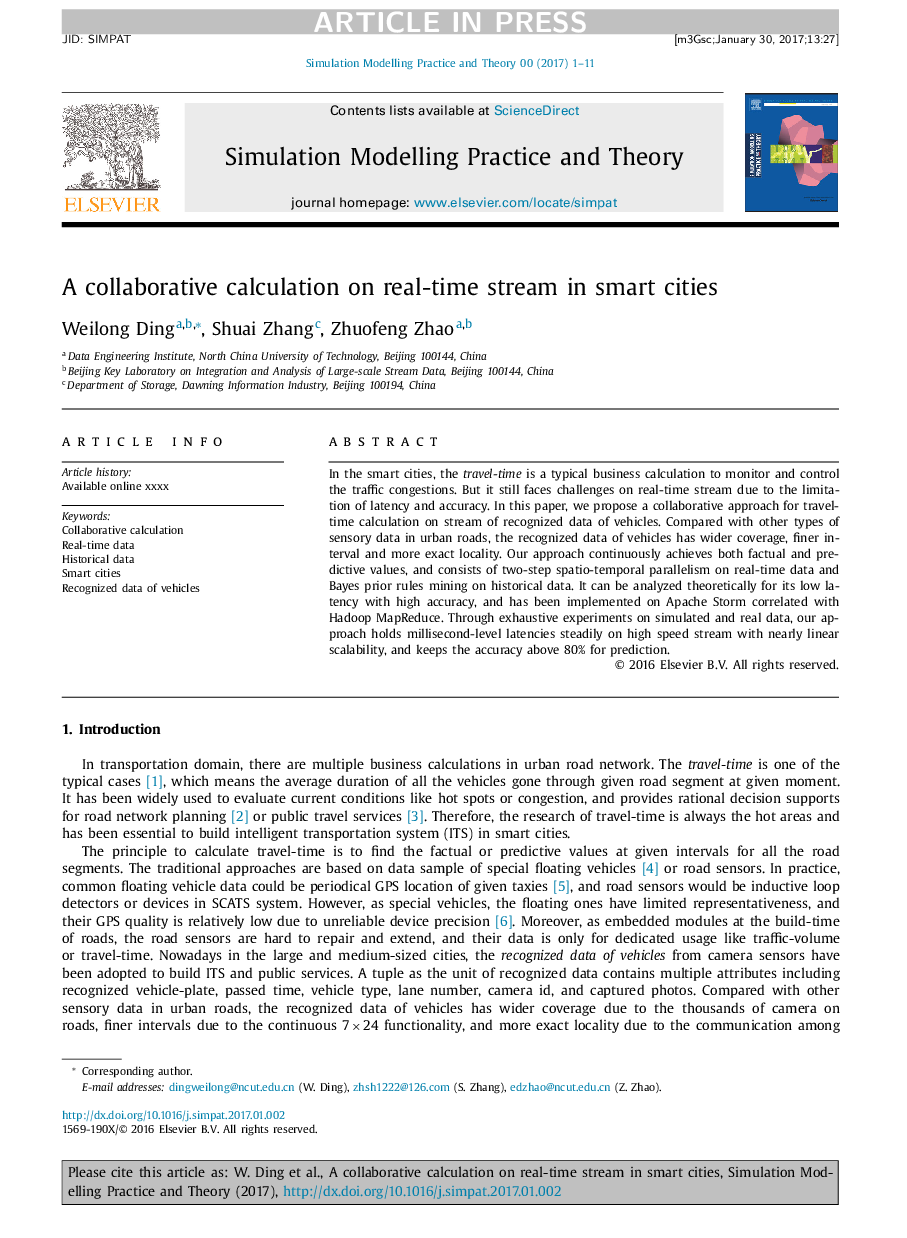| Article ID | Journal | Published Year | Pages | File Type |
|---|---|---|---|---|
| 4962710 | Simulation Modelling Practice and Theory | 2017 | 11 Pages |
Abstract
In the smart cities, the travel-time is a typical business calculation to monitor and control the traffic congestions. But it still faces challenges on real-time stream due to the limitation of latency and accuracy. In this paper, we propose a collaborative approach for travel-time calculation on stream of recognized data of vehicles. Compared with other types of sensory data in urban roads, the recognized data of vehicles has wider coverage, finer interval and more exact locality. Our approach continuously achieves both factual and predictive values, and consists of two-step spatio-temporal parallelism on real-time data and Bayes prior rules mining on historical data. It can be analyzed theoretically for its low latency with high accuracy, and has been implemented on Apache Storm correlated with Hadoop MapReduce. Through exhaustive experiments on simulated and real data, our approach holds millisecond-level latencies steadily on high speed stream with nearly linear scalability, and keeps the accuracy above 80% for prediction.
Related Topics
Physical Sciences and Engineering
Computer Science
Computer Science (General)
Authors
Weilong Ding, Shuai Zhang, Zhuofeng Zhao,
